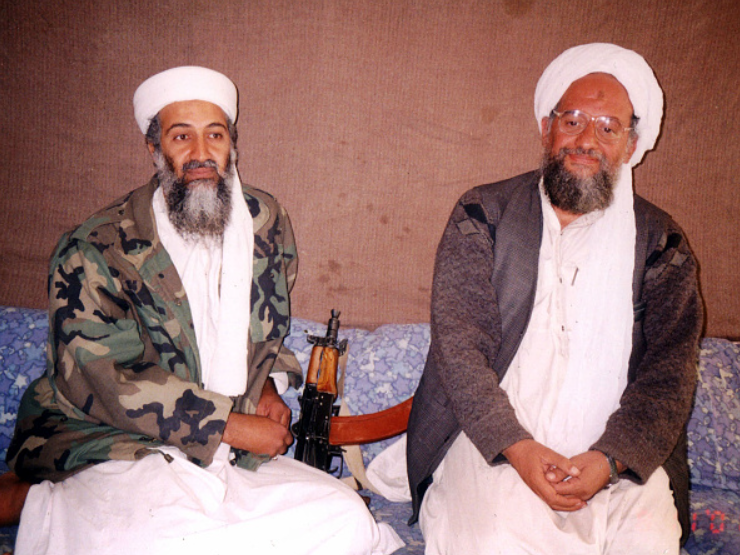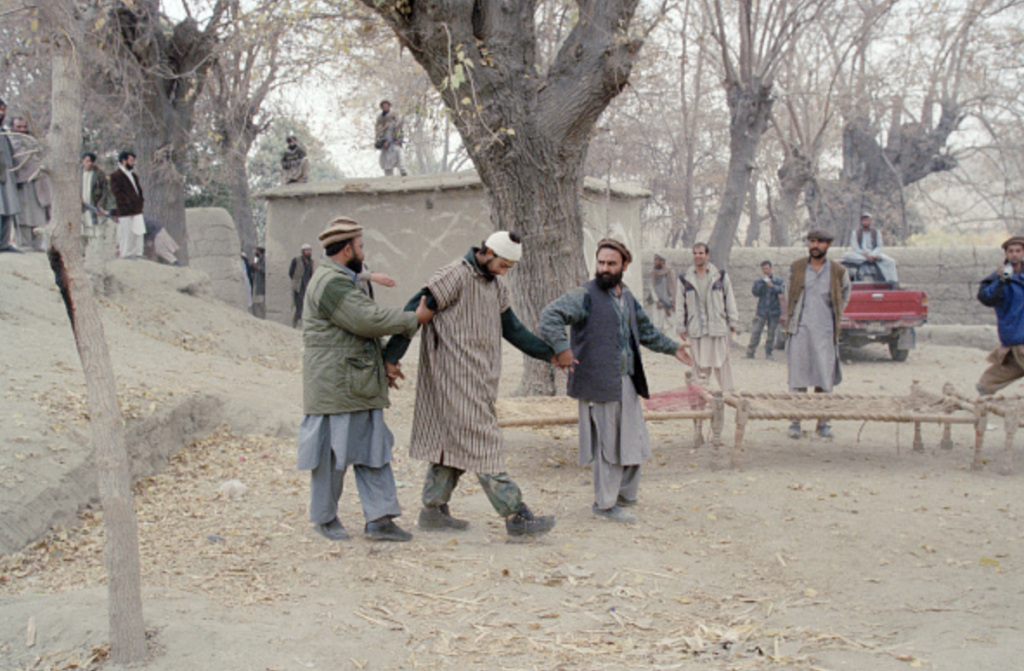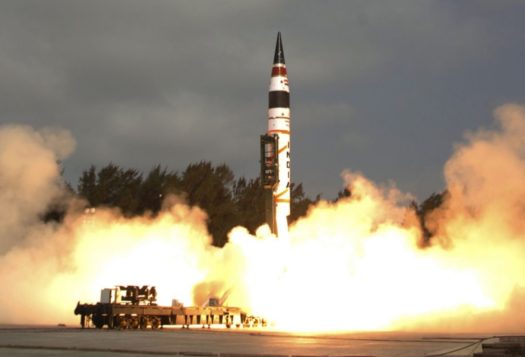
On August 2, U.S. President Joe Biden announced that the United States had killed al-Qaeda leader Ayman al-Zawahiri in a drone strike in Kabul. Zawahiri’s death comes after two decades of military operations against al-Qaeda and other terrorist groups that found refuge in Afghanistan. After the turbulent U.S. withdrawal from Afghanistan last year, the future of its counterterrorism strategy looked uncertain as the Taliban increased their efforts to entrench their control over the country. Biden assured that the United States would be able to conduct “over-the-horizon” operations, which grants Washington the intelligence and technology to eliminate terrorists and other targets without authorizing U.S. troops on the ground. Nevertheless, doubts remain that “over-the-horizon” capabilities offer a credible option to tackle future security risks without the same level of on-the-ground intelligence.
In violation of U.S. interpretations of the 2020 Doha agreement – which required the Taliban leadership to refrain from harboring extremists in their territory – al-Zawahiri was allegedly living in the home of a top aide to Sirajuddin Haqqani in a highly secured downtown area of Kabul. While the Taliban denied knowing of his presence, his death indicates continued ties between the Taliban and al-Qaeda that has evidently lasted since the Afghan-Soviet war in the 1990s.
The strike on Zawahiri was also a political win for President Biden. Although the U.S. “War on Terror” no longer dictates Washington’s foreign policy in South Asia, al-Zawahiri’s death demonstrated the viability of the United States’ “over the horizon capability” after confidence in U.S. counterterrorism capabilities were shaken following its hasty exit from the country last year. The strike also indicates how the United States intends to operate in Afghanistan due to its persistent security concerns with the Taliban allowing terrorist groups like al-Qaeda to operate on its soil as well as its inability to address other group most notably the Islamic State Khorasan Province (ISKP).
Although the U.S. “War on Terror” no longer dictates Washington’s foreign policy in South Asia, al-Zawahiri’s death demonstrated the viability of the United States’ “over the horizon capability” after confidence in U.S. counterterrorism capabilities were shaken following its hasty exit from the country last year.
Zawahiri played a vital part in the radicalization activities in South Asia, which are likely to continue under new leadership. However, al-Qaeda in the Subcontinent (AQIS) founded by Zawahiri gained limited traction in India and a new leader of al-Qaeda might re-attempt to achieve Zawahiri’s unfulfilled objectives. Meanwhile, questions on Pakistan’s possible support for the United States in the strike could influence the country’s strained ties with the Taliban.
The Impact of Zawahiri’s Death on Al-Qaeda
Although Zawahiri lacked the charisma of his predecessor, Osama Bin Laden, his death is equally significant. Zawahiri was one of the architects of the September 11 attacks and the USS Cole bombing off the coast of Yemen in 2000, a crucial component of al-Qaeda’s direct threat to the United States and its interests abroad. Under Zawahiri’s ideological leadership, al-Qaeda evolved and added branches in Africa, the Middle East, and started AQIS.
Even while Zawahiri’s death seems like a moment of resolution, it underscores the reality that al-Qaeda still exists. After Bin Laden’s death, debates surrounded whether al-Qaeda would remain capable under a comparatively less charismatic leader. Under al-Zawahiri, its approach shifted from relying on its central leadership to granting regional factions the necessary latitude to act independently while complying with the guidelines established by the central command. Regional branches also contended with its perpetual rival, the Islamic State.
There are several probable heirs to Zawahiri’s position. Abd al-Rahman al-Maghribi, the son-in-law of al-Zawahiri; Yezid Mebarek, a leader in al-Qaeda’s global management; and Ahmed Diriye, the head of the al-Shabaab in Somalia, are all contenders to lead the organization. The front-runner, Saif al-Adel, an Egyptian like al-Zawahiri and “one of the most experienced professional fighters in the international jihadi movement,” according to Ali Soufan, is projected to bolster the organization’s standing. A new capable leader in al-Qaeda could revive the organization and ensure the affiliates’ steadfast loyalty, supporting al-Zawahiri’s independent franchise model for al-Qaeda. As a result, various factions of al-Qaeda could escalate radicalization efforts across South Asia.
The Regional Impact of Zawahiri’s Death
Al-Zawahiri’s death comes at a tumultuous time for South Asia. Presently, the Taliban is struggling to provide necessities for millions of Afghan citizens, the Tehreek-e-Taliban Pakistan (TTP) is fighting the Pakistani government, with talks of rifts within the Taliban between leaders in Kabul and Kandahar. Amidst these counterterrorism challenges, the execution of the al-Qaeda commander might exacerbate Afghanistan’s precarious situation by motivating al-Qaeda to seek retribution against the United States and its allies with the aid of the Taliban. Furthermore, the TTP’s growing strength in Pakistan and demand for a reversal of the merging of Pakistan’s Federally Administered Tribal Areas with the province of Khyber Pakhtunkhwa will continued to create new security challenges in both Pakistan and the greater region. If speculation that Pakistan assisted the United States in the Zawahiri strike is accurate—at least in offering in air space—the Pakistan can seize the opportunity to bolster its relationship with the United States to improve its struggling economy and internal security situation.
Although al-Zawahiri’s death provides some short-term solace, his influence over al-Qaeda’s structure will continue to permeate across South Asia and threaten the security apparatus of the region.
Al-Zawahiri’s death is seen as a reprieve across South Asia, as he aspired to raise “the banner of jihad” in the region. Al-Qaeda reportedly boasts 180-400 fighters from Pakistan, Bangladesh, and India, and approximately 400 across Afghanistan. Al-Zawahiri also made several references to India, often condemning India’s Kashmir policy and what he referred to as “massacres” in Jammu and Kashmir and Assam. Moreover, he supported the founding of the Jamaat Qaidat Al-jihad fi’shibhi Al-qarrat Al-Hindiya, or “Base of Jihad” in India. His comments on India’s affairs had recently increased, including after the Karnataka Hijab controversy when he urged Indian Muslims to join the jihadist cause. He called on jihadists to join the local al-Qaeda affiliate, the Ansar ul-Islam units in Assam and expand the jihadist network in India’s northeast. One year of Taliban rule emboldened the confidence of terrorists based in Afghanistan, raising the possibility of the Taliban providing shelter to terrorist organizations, like Lashkar-e-Taiba (LeT) and Jaish-e-Mohammed (JeM), both of which are based in Pakistan and have previously led attacks in India.

After al-Zawahiri
Although al-Zawahiri’s death provides some short-term solace, his influence over al-Qaeda’s structure will continue to permeate across South Asia and threaten the security apparatus of the region. It would be premature to write off Afghanistan as a persistent base for terrorist organizations within the region. A change in al-Qaeda leadership would boost the organization’s confidence to execute independent attacks across South Asia in retaliation for al-Zawahiri’s death and stage a more lethal resurgence. Therefore, regional players should continue to adopt a zero-tolerance policy and deny terrorists safe havens. For Pakistan the most pressing challenge remains the TTP. Pakistan’s information minister, Marriyum Aurangzeb, has stated that continuing peace talks between Islamabad and the banned terrorist organization are still taking place in the wake of the TTP’s proclaimed ceasefire. However, these negotiations mediated by the Afghan Taliban might encourage global terrorist organizations to exert pressure on regional actors to make concessions while benefiting the Afghan Taliban.
India also remains a significant target for terrorist organizations based in Afghanistan. Exploring opportunities with multilateral organizations may be an option for India, such as collaboration with the United States and lobby for Washington to be admitted as an observer state to the Bay of Bengal Initiative for Multi-Sectoral Technical and Economic Cooperation (BIMSTEC), which would provide easier access to coordinate multilaterally in counter-terrorism initiatives.
While Zawahiri’s death demonstrates U.S. commitment to security priorities in South Asia, Washington will need to continue to examine and evaluate its counter-terrorism strategy in light of a Taliban-controled Afghanistan. The decentralization of terrorist groups, such as ISIS and al-Qaeda may increase the lethality of attacks from regional affiliates. Given these escalating regional challenges, the effectiveness of targeted interventions should not be understated. This may involve structuring surveillance as well as intelligence to track not only key leadership but the connections between the Taliban and the Haqqani network who have had core ties with terrorist organizations within the region. Like the killing of Osama bin Laden in 2011, al-Zawahiri’s death does not mean the end of al-Qaeda which has proven resilient through the decades.
***


